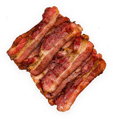
5 Food Label Claims That Don’t Mean Much!
Scan the food labels on supermarket shelves and you’ll see label claims across products in every aisle. Everything from “gluten-free” to “all natural” and “high protein” plastered across product, it can be tough to decipher which are relevant and which are not. With more and more people becoming health conscious, it is important to understand the meaning behind these buzzwords to ensure we are not duped into buying “health” foods that aren’t so healthy after all. So here are 5 common label claims that might not be as helpful as you think.
1. Gluten-Free
Gluten refers to the proteins found in certain cereal grain’s endosperm, commonly found in wheat, as well as barley, rye, spelt and triticale. In addition to whole foods, gluten is often used as an additive in many processed foods such as sausages, sauces, soups and veggie burgers. Gluten is intolerable for individuals with Celiac disease, and can also cause digestive upset for other individuals. However, just because a product is labeled “gluten-free” does not make it healthy!
Processed foods are processed foods whether they contain gluten or not, so just because you are buying gluten-free crackers, muffins or cookies does not mean that you are doing yourself any favours. These types of processed foods still contain refined sugars and vegetable oils, making them a less than ideal choice. Implementing a gluten-free diet in the most beneficial way means removing all processed foods, and when you need to use grains, opting for properly prepared whole grains that do not contain gluten in the first place.
2. High in Protein
Albeit protein is an important macronutrient in our diet, in addition to carbohydrate and fat, just because something is high in protein does not mean it is always a good choice. For instance, this popular protein peanut butter and chocolate granola contain 10 grams of protein per serving, however, it also contains 15 grams of sugar from sugar, dextrose, tapioca syrup and refiner’s syrup, as well as a laundry list of ingredients.
If you are looking to add protein to your diet, that’s fine, but you are better off focusing on whole food sources of protein, such as truLOCAL’s meat, poultry and seafood and avoid processed carbohydrate-based foods with added protein.
3. Source of Fibre
If you walk down a cereal or granola bar aisle, you have certainly seen the claim ‘good source of fiber’ on many boxed foods, and for decades fiber has been touted as an essential component of a healthy diet. Yes, fibre is undoubtedly an important part of a healthy diet, however just because your cereal or granola bar claim to be a “source of fibre” it does not immediately make them a healthy choice.
For example, this incredibly popular fibre-rich granola bar is made with 43 ingredients (43!!), 9 grams of sugar, and the first ingredient listed is glucose-fructose, a code word for high fructose corn syrup. The only reason this granola bar contains enough fibre to make health claims is that it has added chicory root extract (inulin fibre) listed as an ingredient. If you truly want to add fibre to your diet, avoid the processed foods with added fibre, and opt for whole foods such as vegetables, legumes or whole grains with naturally occurring fibre.
4. Made with Real Fruit
I hate to point out of obvious, but the only thing “made with real fruit” is real fruit. Apple, oranges, bananas, and any other fruit you can think of. Although the claim “made with real fruit” does mean that the named ingredient is present in the food, it does not dictate the type (i.e. – frozen powdered, ground, concentrated, etc..) nor does it dictate how much real fruit is actually present in the product.
Therefore you will often find this claim on processed food products such as fruit snacks, granola bars, cereals, and juice that actually contain very little real fruit. For instance, although these strawberry kiwi popsicles are “made with real fruit”, they also contain sugar and glucose as ingredients, and a whopping 23 grams of sugar per bar, which is equivalent to one serving of chocolate ice cream. The only way to determine if a food with “made with real fruit” health claims is a good option or not is to read the ingredients list to see what else it contains.
5. Multigrain
The terms multigrain, 7-grain, 12-grain or any other combination of grains may seem like a better option, but these nutrition buzzwords are in fact irrelevant. The term multigrain suggests that the bread, cracker or grain product was made of flour from multiple types of grains, such as wheat, spelt, rye and/or barley, but it does not specify the quality or type of flour used.
Although these products might be made with multiple types of grains, making it multi-grain product, if all of the grain flours are refined and/or bleached flours it is a moot point. Instead, opt for whole grain, sprouted grain or sourdough options to ensure you are getting a superior quality product.
At the end of the day, the most important thing you can do is read the ingredients. You need to know that is in your food in order to make an informed decision, not what some marketing manager decided to put on the front of the package.
Article By: Stephanie Kay Nutrition
Posted on
July 15th, 2021








